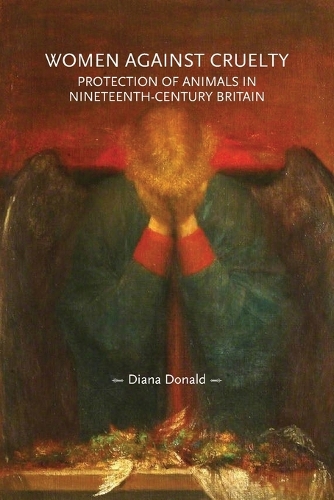
Women Against Cruelty: Protection of Animals in Nineteenth-Century Britain: Revised Edition
(Paperback, 2nd edition)
Available Formats
Publishing Details
Women Against Cruelty: Protection of Animals in Nineteenth-Century Britain: Revised Edition
By (Author) Diana Donald
Manchester University Press
Manchester University Press
1st June 2021
2nd edition
United Kingdom
Classifications
General
Non Fiction
Gender studies: women and girls
Animals and society / Animal rights - issues and debates
Hunting or shooting animals and game
179.30820941
Physical Properties
Paperback
312
Width 156mm, Height 234mm, Spine 18mm
485g
Description
This is the first book to explore women's leading role in animal protection in nineteenth-century Britain, drawing on rich archival sources. Women founded bodies such as the Battersea Dogs' Home, the Royal Society for the Protection of Birds and various groups that opposed vivisection. They energetically promoted better treatment of animals, both through practical action and through their writings, such as Anna Sewell's Black Beauty. Yet their efforts were frequently belittled by opponents, or decried as typifying female 'sentimentality' and hysteria. Only the development of feminism in the later Victorian period enabled women to show that spontaneous fellow-feeling with animals was a civilising force. Women's own experience of oppressive patriarchy bonded them with animals, who equally suffered from the dominance of masculine values in society, and from an assumption that all-powerful humans were entitled to exploit animals at will. -- .
Reviews
'In her riveting and meticulously researched book, Diana Donald explores the complex relationships between women, gender and animal protection movements. She shows, with insight and compassion, what was at stake in the quest to change both attitudes towards and practices concerning animals. Weaving together accounts of women's activism, legal and political debates, controversies around vivisection and the roles of institutions, Donald is writing important and timely history about forms of empathy.'
Professor Ludmilla Jordanova, Durham University
'In a compelling and fascinating work, Diana Donald restores the words and deeds of 19th century women to the historical recordupdating interpretations with a powerful and empowering narrative of the inseparability of animal advocacy, politics and gender.'
Carol J. Adams, author of The Sexual Politics of Meat and Burger
'Diana Donalds engaging and thoroughly researched new book reveals the importance of the activities of women in the development of the animal protection movement in Britain. [...] This is an excellent book because it demonstrates the huge amount of female talent and energy that underpinned the animal protection movement in the nineteenth and early twentieth centuries. It is also, though, realistic about the scale of the challenge imperialism, hunting and industrial capitalism all increased cruelty to animals in this period. These
women were battling against expanding vested interests and an entrenched gendered culture that systematically dismissed and marginalised feminine views. Donalds work is important in showing female activists, organisations and strategies, but it also allows us to see their relationship with wider Victorian and Edwardian culture.'
Womens History Review
'[...] Donald describes vividly the advocacy of women on behalf of animals and the gendered perceptions of kindness to animals during the Victorian era.'
Reviews in History
'[...] Donalds work offers a more focused, detailed examination of Victorian gender politics as they manifest in debates over the status of nonhuman animals.'
Society and Animals
'Donald explores the interplay between women, gender, politics, and animal protection. She skillfully constructs an argument to show how feelings of empathy for animals and advocacy for better treatment was cansidered more appropriate for women at the time. [...] Readers interested in the history of women and religion in nineteenth-century reform movements will flnd much to commend in this book.'
Anglican and Episcopal History, Sheryl A. Kujawa-Holbrook
Author Bio
Diana Donald, now an independent scholar, is the author of Picturing Animals in Britain 17501850, and co-author of the prize-winning Endless Forms: Charles Darwin, Natural Science and the Visual Arts
